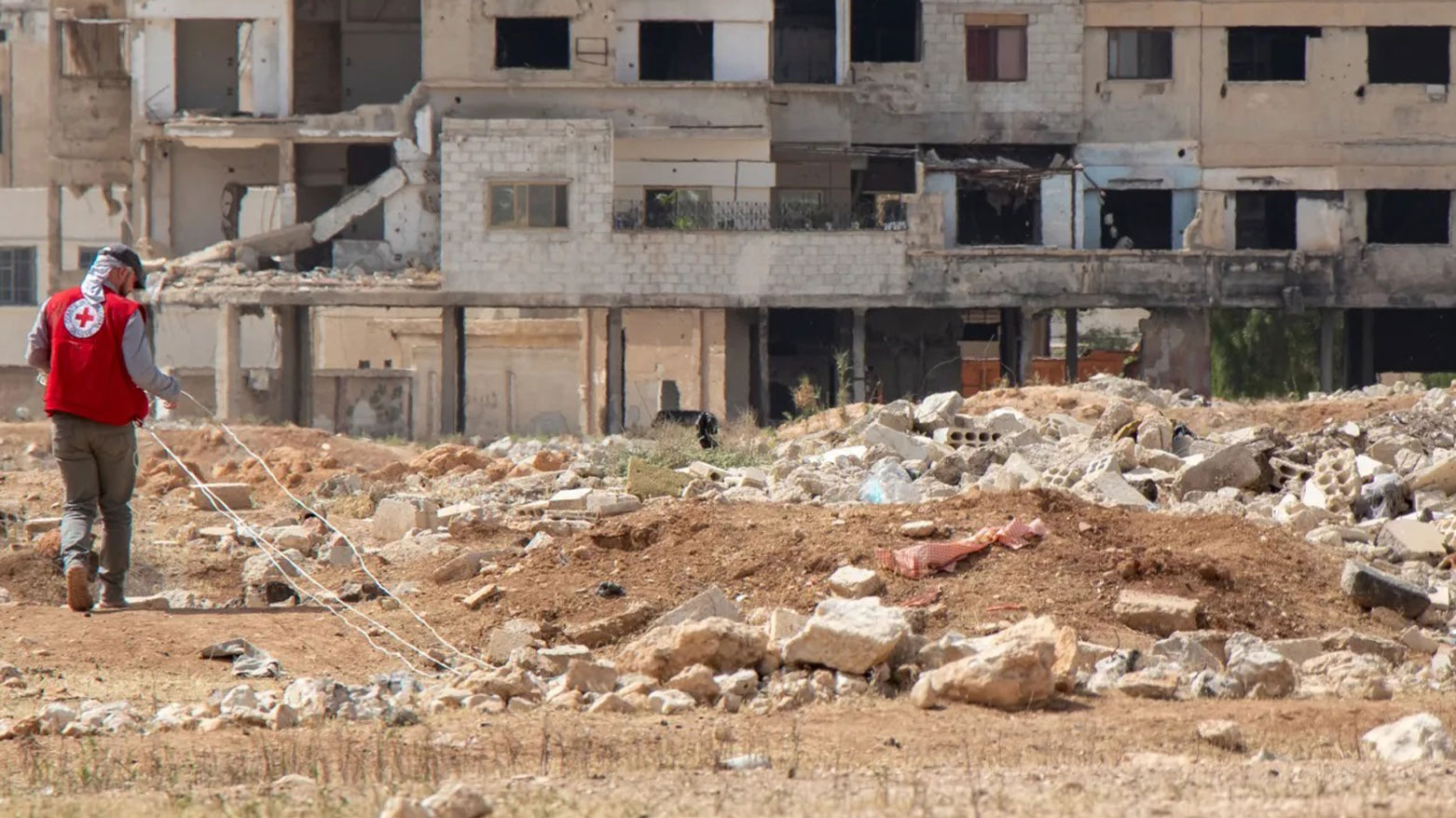Deadly Legacy of War: Landmines and Explosive Ordnance Threaten Civilians in Syria
According to an ICRC statement released on Thursday, Syria has witnessed a sharp rise in casualties from explosive ordnance since Dec. 8, 2024.

ERBIL (Kurdistan24) – The International Committee of the Red Cross (ICRC) has raised alarm over the growing threat posed by landmines and explosive remnants of war in Syria, as returning civilians and fresh violence expose more communities to deadly contamination.
According to an ICRC statement released on Thursday, Syria has witnessed a sharp rise in casualties from explosive ordnance since Dec. 8, 2024. Between that date and March 25 this year, 748 casualties have been reported—500 of them since the start of 2025. This comes in stark contrast to the 912 casualties recorded for the entirety of 2024.
The victims include children killed while playing in Dara’a and Hama, women injured while collecting firewood in Deir ez-Zur and Idlib, and farmers maimed while working in their fields in Douma.
The recent surge in casualties is attributed to the deteriorating security situation in Syria. Abandoned military vehicles potentially carrying ammunition or explosives and neglected weapons stockpiles have increased civilian exposure. Additionally, military strikes on ammunition depots have scattered unexploded ordnance, further endangering communities.
A growing number of displaced people returning to their hometowns since December 2024 has heightened the risk, as many unknowingly venture into hazardous areas. The economic crisis has also forced civilians to collect scrap metal from abandoned sites, often exposing them to explosive remnants of war. In the absence of a comprehensive demining program, some Syrians have taken it upon themselves to clear or dismantle explosives without professional expertise, often at great personal risk.
The ICRC warns that more than half of Syria’s population faces daily life-threatening risks due to landmine contamination. Children are particularly vulnerable, with one in three casualties being a child. Beyond the immediate dangers, widespread contamination has hindered access to healthcare, education, and basic necessities. Farmers also fear cultivating their land, exacerbating food insecurity across the country.
As the crisis persists, humanitarian organizations continue to call for urgent action to mitigate the deadly impact of unexploded ordnance and ensure the safety of civilians returning home after years of conflict.